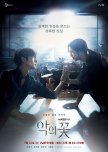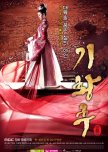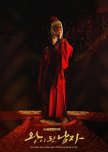

Adding this based on my original comment:
- Plots are a little similar, murder happens and they are stuck in a loop to solve the murder
- Similar structure, ~15 episodes, similar plot progression
- At its core, it's about empathy, with the time loop to facilitate character growth and better understandings amongst the characters/strangers at first
- As mentioned, there is slightly less romance in Reset
- Overall the drama are reminiscent of each other
- High rating on Douban ??, which is a much harsher audience than MDL
- Plots are a little similar, murder happens and they are stuck in a loop to solve the murder
- Similar structure, ~15 episodes, similar plot progression
- At its core, it's about empathy, with the time loop to facilitate character growth and better understandings amongst the characters/strangers at first
- As mentioned, there is slightly less romance in Reset
- Overall the drama are reminiscent of each other
- High rating on Douban ??, which is a much harsher audience than MDL


Lee joon gi is the male lead of both drama, the similarity isn't obvious but you have a mc who frequently gets himself into trouble by trying to shoulder everything by himself, and female lead who worries/cries about him, and due to misunderstanding, she questions his love.


- Revenge sublot
- MC who is neither good or bad, grey area
- MC with tragic past causes him to be heartless in the present
- tragic past is a crime that was covered up and ruins the whole family
- MC with acting skills who uses them to gain an edge on many situations
- MC opens up their heart slowly
- MC who is neither good or bad, grey area
- MC with tragic past causes him to be heartless in the present
- tragic past is a crime that was covered up and ruins the whole family
- MC with acting skills who uses them to gain an edge on many situations
- MC opens up their heart slowly


Both taiwanese drama about time travel to the past about 20 years. Both very touching and focused on relationship between 2 people from different timelines.


Female lead feels trapped with the male lead, tries to escape but ends up falling in love. In both cases, the male lead is possessive and overprotective.


- losing memory of the deepest love, but also deepest sadness.
- falling in love in different lives/memory frames.
- crown prince
- etc
- falling in love in different lives/memory frames.
- crown prince
- etc


Many reasons revolve around the protagonist:
- protagonist of low(er) status takes on the role of the emperor
- falls in love with empress
- initially happy-go-lucky
- idealistic, wants uphold justice/equality for the people
- naive in his actions to achieve ideals, suffers because of it
- struggles with harsh reality of palace politics and human nature
- struggles with reality that he can't create a happy ending for everyone
The rest is pretty standard for almost any historical drama:
- fight for throne
- power struggle between different groups of nobles
- revenge
- assassination
- deception
- etc
- protagonist of low(er) status takes on the role of the emperor
- falls in love with empress
- initially happy-go-lucky
- idealistic, wants uphold justice/equality for the people
- naive in his actions to achieve ideals, suffers because of it
- struggles with harsh reality of palace politics and human nature
- struggles with reality that he can't create a happy ending for everyone
The rest is pretty standard for almost any historical drama:
- fight for throne
- power struggle between different groups of nobles
- revenge
- assassination
- deception
- etc


While the premises are completely different, in both drama, it's the female lead's job/task to be with the male lead, and there's a supporting cast monitoring them and advising her as part of some ridiculous ploy.




- chairman's son (boss) and lowly employee
- theme of lunchboxes? though in this case, it's being given to the employee rather than boss
- theme of lunchboxes? though in this case, it's being given to the employee rather than boss
























